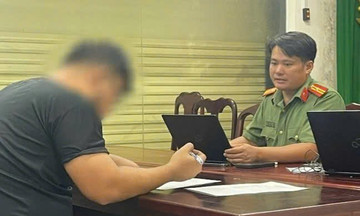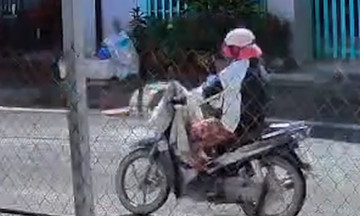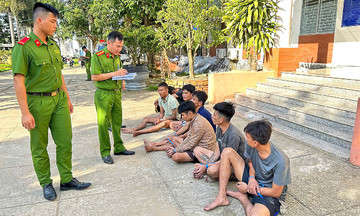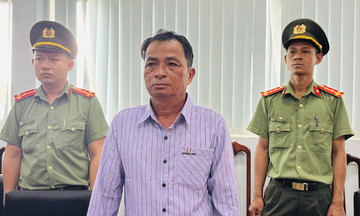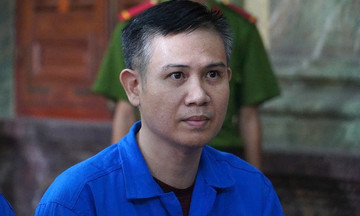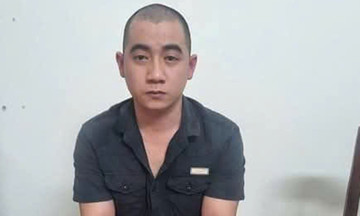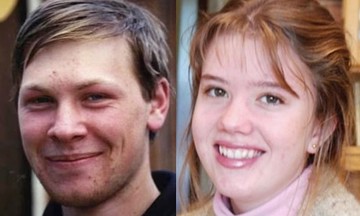The Supreme People's Procuracy has indicted 28 individuals involved in a bribery network spanning 20 court cases. The cases, involving bribery, receiving bribes, and brokering bribes, occurred at the High Court in Da Nang (now the High Court of Appeal of the Supreme People's Court in Da Nang) and in the provinces of Dak Lak, Vinh Phuc (now Phu Tho), and Hue City.
Among those indicted are 10 former leaders, judges, and court officials; three prosecutors and prosecution staff; two bailiffs and officials from the Civil Judgment Enforcement Agency; four lawyers and law firm staff; and nine defendants and litigants.
The Supreme People's Procuracy highlighted the widespread nature of the offenses, occurring over an extended period (3/2022-5/2024), involving multiple instances, and totaling over 11.4 billion VND. The bribes were intended to influence case outcomes in favor of those offering the money.
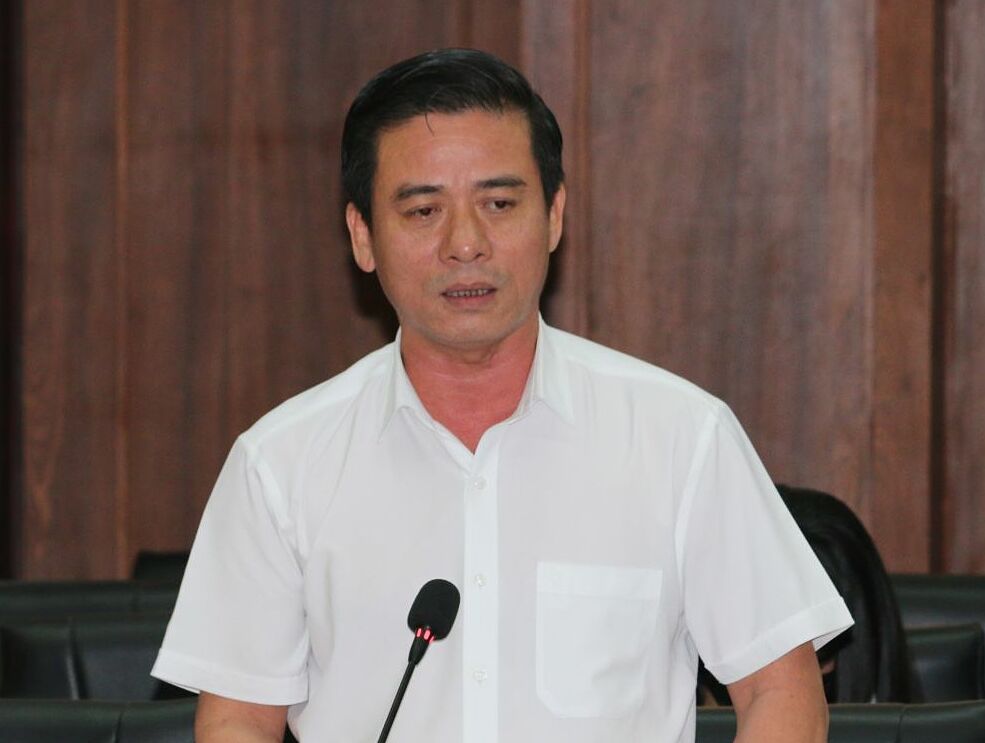 |
Pham Viet Cuong, former Deputy Chief Justice of the High Court in Da Nang, is accused of accepting bribes to interfere in five cases. Photo: Court |
Pham Viet Cuong, former Deputy Chief Justice of the High Court in Da Nang, is accused of accepting bribes to interfere in five cases. Photo: Court
Various motivations for bribery
The 20 cases involved eight criminal cases and 12 civil disputes, including business and inheritance cases. The common thread was the belief that money could buy favorable judgments. Motivations ranged from reducing sentences to influencing decisions on appeals and cassation.
In one case, a mother bribed officials 300 million VND to reduce her two sons' prison sentences by two years each in a murder case in Gia Lai. In a similar case in Dak Lak, a sister paid 150 million VND to reduce her brother's sentence from 15 years to 13 years and six months. In another Dak Lak case, a wife bribed officials 400 million VND to reduce her husband's five-year sentence for gambling by two years.
Defendants also pooled money to bribe officials for lighter sentences on appeal, and even paid 50 million VND for a judge's signature to postpone a trial so they could "enjoy the Tet holiday."
In some instances, judges themselves initiated the bribery, not at the behest of defendants, but to protect their own rulings. In a 2023 civil case in Gia Lai, Nguyen Xuan Hung, then Chief Justice of the Dak Doa District People's Court, offered a 320 million VND bribe to overturn an appellate court decision that reversed his wife's ruling in a property dispute. He was concerned the overturned ruling would negatively impact his wife’s reappointment as a judge. Hung is now being prosecuted for bribery.
Tran Duy Duc, Deputy Chief Justice of the Buon Ma Thuot City People's Court, offered bribes in a gambling case, even though none of the defendants had solicited his help. He is facing charges of brokering bribes. Similarly, Ngo Van Nam, a judge at the Hue City People's Court, bribed officials 250 million VND to reduce his niece's 20-year sentence for drug trafficking and prevent the confiscation of her property.
The cases reveal a pattern where those who lost at the first instance would bribe for a favorable appeal outcome. If they lost both levels, they would bribe for cassation. Even those who won initially would bribe to ensure the appellate court upheld the decision or to prevent the appellate prosecutor from appealing. Lawyers also participated in the bribery scheme, as exemplified by Nguyen Ngoc Anh, Director of Anh Huy Luat Co., Ltd., and Hoang Kien An, who were prosecuted for bribery in a 2023 inheritance case in Thua Thien Hue.
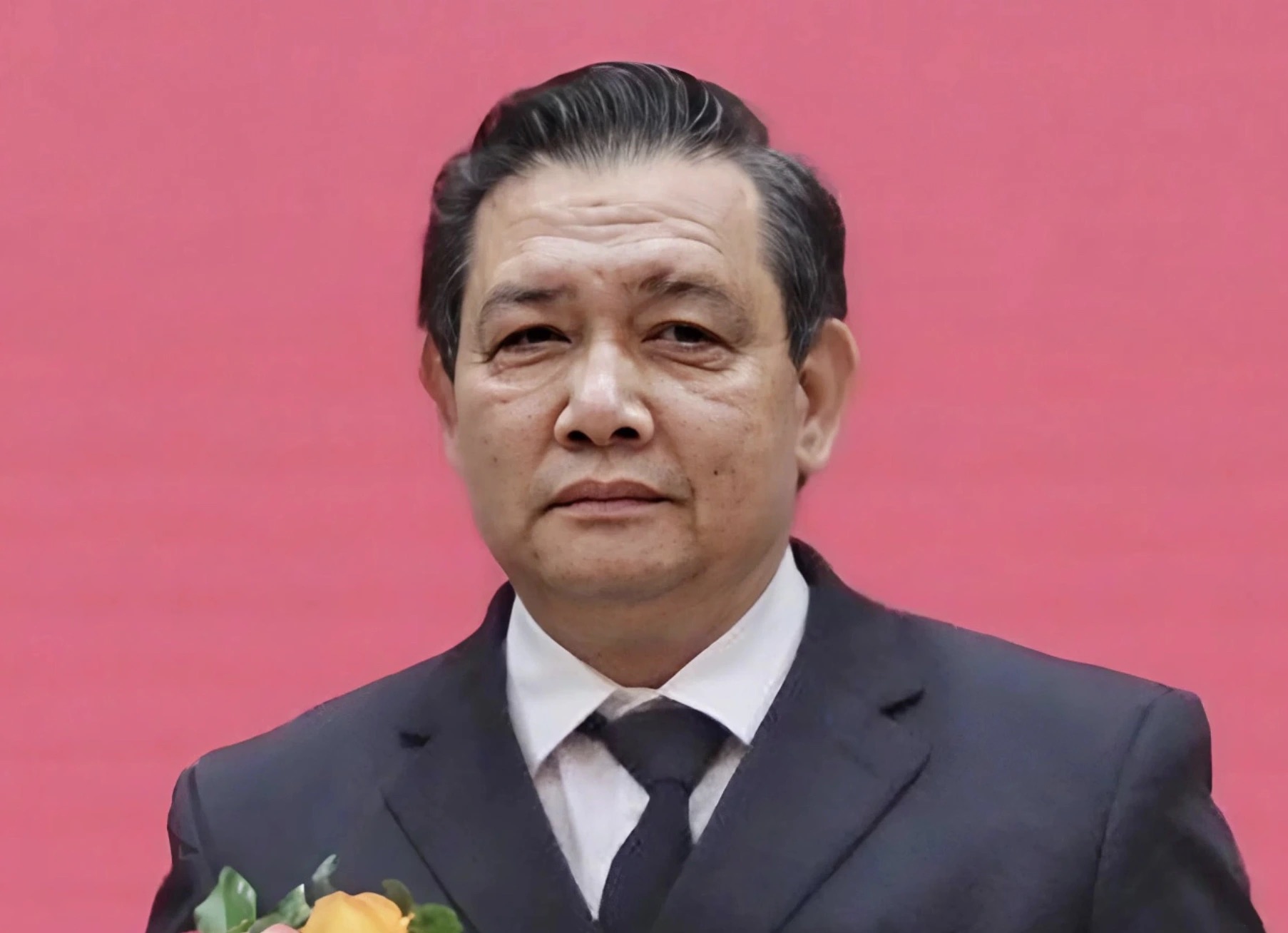 |
Pham Tan Hoang, former Deputy Chief Justice of the High Court in Da Nang, is accused of accepting 220 million VND in bribes in two cases. Photo: Court |
Pham Tan Hoang, former Deputy Chief Justice of the High Court in Da Nang, is accused of accepting 220 million VND in bribes in two cases. Photo: Court
The many faces of the intermediaries
In all 20 cases, those seeking to influence court decisions worked through intermediaries, sometimes up to five, rather than directly contacting the decision-makers. This explains why 17 of the 28 defendants are being prosecuted for brokering bribes. These intermediaries, ranging from neighbors of defendants to lawyers, law firm staff, and even drivers for the prosecution office, connected those offering bribes with those in power. Nine of the 17 intermediaries were former judges, court officials, or prosecution staff. The intermediaries often kept a portion of the bribe, with only 30-50% reaching the intended recipient.
The case involving K-Homes in Nha Trang illustrates this multi-layered bribery process. Having lost at both trial and appellate levels, and having his cassation appeal rejected, K-Homes chairman Duong Anh Son contacted Nguyen Thi Nga, Deputy Head of a department at the High Court in Da Nang. Nga involved lawyer Ngoc Anh, who then involved Nguyen Huy Can, Deputy Chief Justice of the Civil Court in Vinh Phuc province. Can, in turn, sought assistance from yet another individual.
Through these four intermediaries, the initial bribe request of 1.5 billion VND from Can escalated to 2 billion VND when relayed through Ngoc Anh, and ultimately to 3 billion VND when presented to Son. After four months without results, Son demanded a refund and reported Nga. The group was caught red-handed exchanging money at a Hanoi restaurant in August 2024.
Nga was the most active intermediary, brokering 15 cases, 10 of which were successful, and pocketing between 30 and 330 million VND per case, totaling 8.6 billion VND. Even Do Dang Thuy, a contract driver for the Buon Don District People's Procuracy in Dak Lak, profited 260 million VND from brokering a reduced sentence in a gambling case. He received 680 million VND, used 450 million VND for the bribe, kept 230 million VND, and received an additional 30 million VND as a thank you.
Unlike other recent corruption cases where bribes were often given in cash, 16 of the 20 bribery cases involved electronic bank transfers ranging from hundreds of millions to billions of VND. Some used relatives' accounts to obscure the transactions, but investigators obtained bank statements, recordings, and phone data as evidence, leading to confessions from the accused.
Confessions and repercussions
Pham Viet Cuong, former Deputy Chief Justice of the High Court in Da Nang, is accused of receiving 970 million VND in bribes, both directly and through intermediaries, to influence five criminal and civil cases. Cuong confessed, claiming he reported two instances to higher authorities but was overruled. In the three successful instances, he said he gave a portion of the bribes to higher authorities at the High Court in Da Nang.
The Supreme People's Procuracy has separated the case involving the High Court officials for further investigation. Some individuals who confessed to offering bribes before being discovered have been granted immunity. The investigative agency has also requested a review of the verdicts and decisions in the 20 related cases. During the investigation and prosecution, 17 defendants and their families returned a total of 1.255 billion VND in illicit gains. The Hanoi People's Court will try the case.
Thanh Lam



